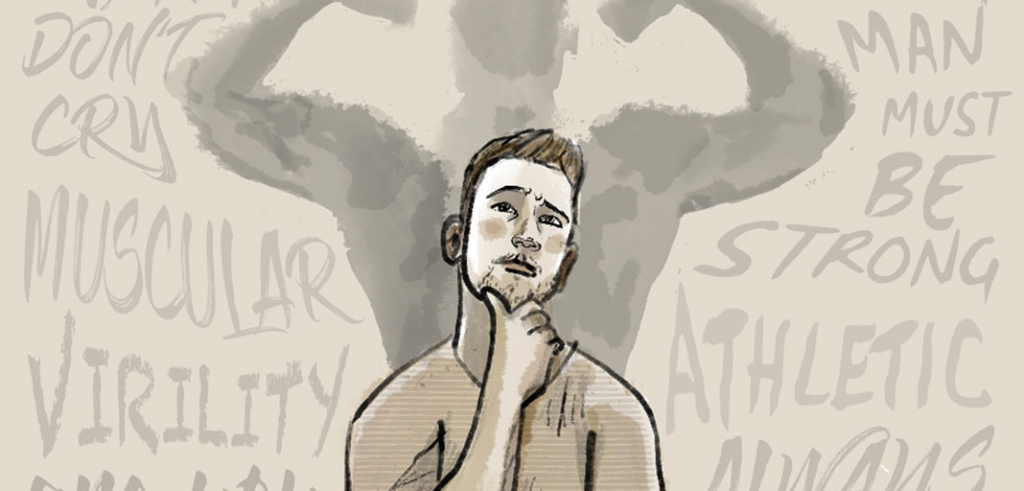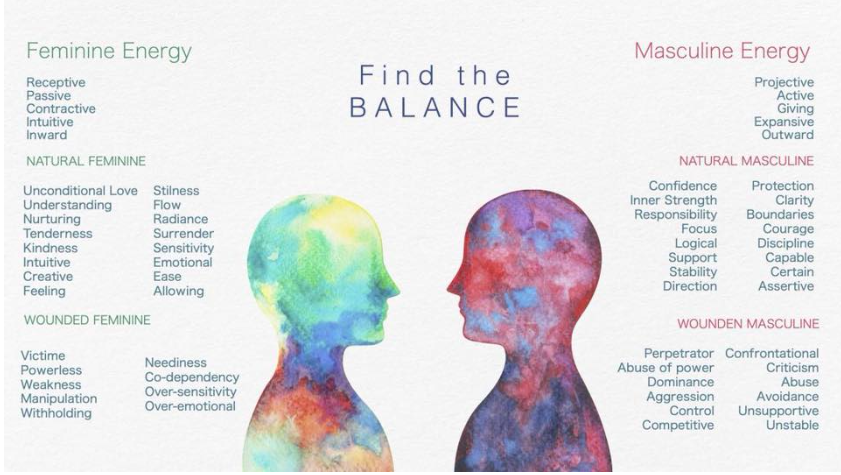Femininity
In general, being “feminine” often encompasses qualities and behaviours that are traditionally associated with women, such as nurturing, empathy, grace, and gentleness. However, it’s important to remember that these traits are not inherently tied to gender, and people of any gender can express these qualities.

Masculinity
Masculinity involves displaying attitudes and behaviours that signify and validate maleness, and involves being recognised in particular ways by other men and women. Masculinity is constructed and defined socially, historically and politically, rather than being biologically driven.

Masculinities and femininities refer to the social roles, behaviours, and meanings prescribed for men and women in any society at any time. Such normative gender ideologies must be distinguished from biological ‘sex’, and must be understood to be plural as there is no single definition for all men and all women. Masculinities and femininities are structured and expressed through other axes of identity such as class, race, ethnicity, age, and sexuality. Thus some definitions are held up as the hegemonic versions, against which others are measured. Gender ideologies are more than properties of individuals; masculinities and femininities are also institutionally organised and elaborated and experienced through interactions.

Identity?
Identity refers to the qualities, characteristics, beliefs and values that define an individual or a group. it is a multidimensional and complex concept that encompasses various aspects of a persons life, such as heir race, ethnicity, gender, sexuality, nationality, religion, social class, and personal experiences. identity can also be influenced by external factors such as culture, society and interactions with other individuals. It plays a significant role in shaping an individuals sense of self and how they relate to others.
Some factors that influence identity are external, such as socioeconomic status, ethnicity, or culture. These are classified as core elements. Identity is also influenced by internal factors, such as political, religious, and spiritual beliefs, morals, attitudes, thoughts, and lived experiences.
What can influence identities?
Identity formation and evolution are impacted by a variety of internal and external factors like society, family, loved ones, ethnicity, race, culture, location, opportunities, media, interests, appearance, self-expression and life experiences. The development of individual identities is influenced by societal forces. Therefore, you cannot understand yourself or others without understanding how society constructs or defines characteristics such as gender, sexuality, race, religion, social class, and nationality.
The themes of ‘Femininity and masculinity’ are a binary opposite, which is a pair of related terms or concepts that are opposite in meaning.
Social identity is a concept of who you are in public, work or even with your friends. this can be influenced by things people do or say that people see online or even when they are out in public. a popular/trendy identity that has grown in the UK is roadmen. stereotypically roadmen are usually dressed in all black, they are also known for having a postcode war which is a where a group of people feel like they need to defend there area from the other people around them. Social identity can also be shown through what you wear (fashion etc). this can give people an insight on who you are.
